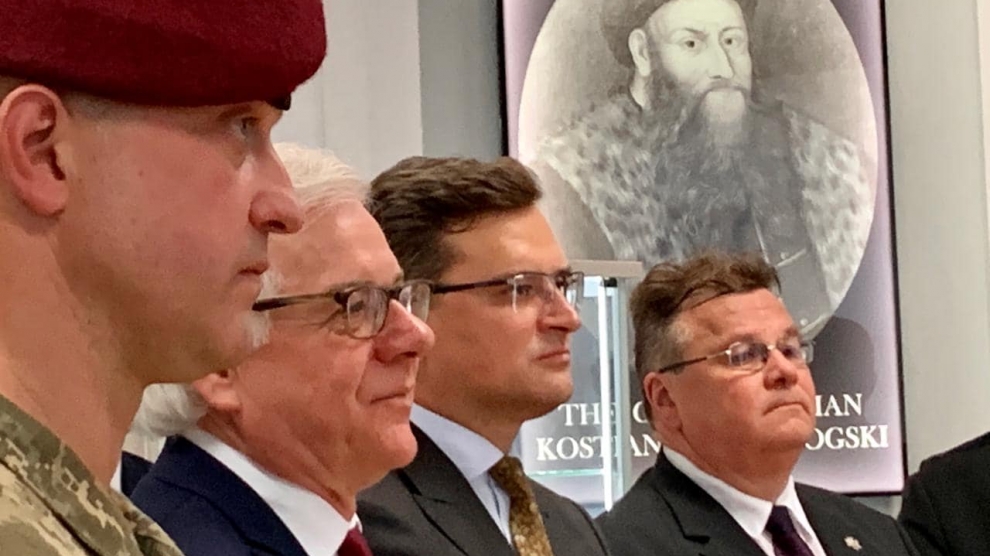On July 28, the foreign ministers of Ukraine, Poland, and Lithuania – Dmytro Kuleba, Jacek Czaputowicz, and Linas Linkevičius – announced the creation of a new regional cooperation initiative, the Lublin Triangle, which will focus on the cultural, economic, and strategic interests of the three central European nations.
This new format aims to bring the three countries closer together while also echoing their historical ties — namely the 17th century Lithuanian-Polish Commonwealth which included most of today’s Ukraine in its borders.
Ukraine, Poland, and Lithuania are hoping the initiative will be an important mechanism for strengthening Central Europe’s role in the EU and promoting Ukraine’s European and Euroatlantic integration.
“The Lublin Triangle emphasises the important role that Ukraine, Poland, and Lithuania play in Central Europe and the world,” said Ukrainian foreign minister Dmytro Kuleba. “Our unity can not only strengthen our countries but also effectively counter common threats, guarantee the security and prosperity of our region.”
Security will be one of the main priorities of the Lublin Triangle, with the format’s participants agreeing to coordinate actions to protect international law in the context of Russia’s ongoing annexation of Crimea.
Ukraine, Poland, and Lithuania have all refused to recognise Russia’s illegal occupation of Crimea. They have also called on Russia to withdraw troops from all areas of Ukraine, including certain districts in the Donetsk and Luhansk regions in the east of the country.
The three countries have already been cooperating in the security sphere with the formation of the Lithuanian-Polish-Ukrainian Brigade (LitPolUkrBrig) in 2014 in the city of Lublin. The brigade is meant to fulfil tasks given to it by the EU, NATO and the United Nations.
According to a joint statement released by the Ukrainian Ministry of Foreign Affairs, the signatories of the Lublin Triangle support Ukraine joining NATO, and believe that providing the country with a NATO membership action plan should be next step in this direction.
Ukraine has sought to join NATO ever since Russia annexed Crimea in 2014. Support for NATO has since risen in the country, with around 69 per cent of Ukrainians now in favour of NATO accession.
In addition to security priorities, the Lublin Triangle is also designed to be a platform for political, economic and social cooperation between Ukraine, Poland, and Lithuania. It will include regular meetings as well as top-level consultations between the foreign ministers.
The Lublin Triangle is the first Central Europe-specific alliance that Ukraine has joined, as the country is currently not a part of the Visegrad Four or the Bucharest Nine.
“Ukraine constantly tries to join some existing formats – the Visegrad Four, the Bucharest Nine, the Three Seas, the EU and NATO. But I believe that Ukraine should not only aspire to join something already created by somebody but be creative ourselves, engage in central European affairs”, Mr Kuleba said in a video address on his Facebook page.
“This is yet another step of Ukraine to Europe, a return into the European family of nations,” he concluded.
—
Photo: Dmytro Kuleba official Facebook page.
—
Unlike many news and information platforms, Emerging Europe is free to read, and always will be. There is no paywall here. We are independent, not affiliated with nor representing any political party or business organisation. We want the very best for emerging Europe, nothing more, nothing less. Your support will help us continue to spread the word about this amazing region.
You can contribute here. Thank you.


